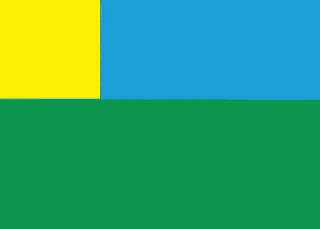La Gonave Cooperative to start growing wild blackberries on La Gonave
We have ordered a special variety of blackberry that could survive Haiti's relenting heat. While the island has favorable conditions, heat could prevent the plant from surviving or produce fruit.
Blackberries are a fruit that is not only known for pies and jams, but also known for it's high vitamin properties. In places like Seattle, wild blackberries are everywhere and as a result millions of blackberry flowers produce several tons of fruit that is rarely harvested by the general public. In fact all of the states in the lower 48 can grow blackberries.
Given that there are many different types of blackberries, many will not survive in Haiti. We are hoping to create the correct soil chemistry, as well as reducing heat to grow blackberries. If correctly modified we could possibly make a variety that has no problem surviving in Haiti.
While this plant will produce a tremendous amount of fruit for locals it also is a wonderful addition for honeybee fodder. In the US, there is a time frame early in the year known as the blackberry flow. This is when the honeybees tend to focus on blackberries.
We will grow over 100 wild blackberries all over the island of La Gonave to see what locations the plant thrives better, or if any location on the island will work. If the plants grow better on the mountain, in a valley, or in the middle of the island. While the wild blackberries will not be a crop that the cooperative will raise, actual farm raised blackberries will be a crop that the cooperative will raise in the future. The wild blackberries will teach of how to work with the conditions on the island of La Gonave.
Research in this project will be financed by Hurko and will be a year long study. We are excited that our newly formed cooperative will be able to launch a program that will lead to future understanding of this valuable fruit. To our understanding there are no other blackberry research programs in the Caribbean.
Go Gonave!
Blackberries are a fruit that is not only known for pies and jams, but also known for it's high vitamin properties. In places like Seattle, wild blackberries are everywhere and as a result millions of blackberry flowers produce several tons of fruit that is rarely harvested by the general public. In fact all of the states in the lower 48 can grow blackberries.
Given that there are many different types of blackberries, many will not survive in Haiti. We are hoping to create the correct soil chemistry, as well as reducing heat to grow blackberries. If correctly modified we could possibly make a variety that has no problem surviving in Haiti.
While this plant will produce a tremendous amount of fruit for locals it also is a wonderful addition for honeybee fodder. In the US, there is a time frame early in the year known as the blackberry flow. This is when the honeybees tend to focus on blackberries.
We will grow over 100 wild blackberries all over the island of La Gonave to see what locations the plant thrives better, or if any location on the island will work. If the plants grow better on the mountain, in a valley, or in the middle of the island. While the wild blackberries will not be a crop that the cooperative will raise, actual farm raised blackberries will be a crop that the cooperative will raise in the future. The wild blackberries will teach of how to work with the conditions on the island of La Gonave.
Research in this project will be financed by Hurko and will be a year long study. We are excited that our newly formed cooperative will be able to launch a program that will lead to future understanding of this valuable fruit. To our understanding there are no other blackberry research programs in the Caribbean.
Go Gonave!



Comments
Post a Comment
Any racist remarks or otherwise insensitive remarks will be removed and the person placing the comment will be banned from the page.